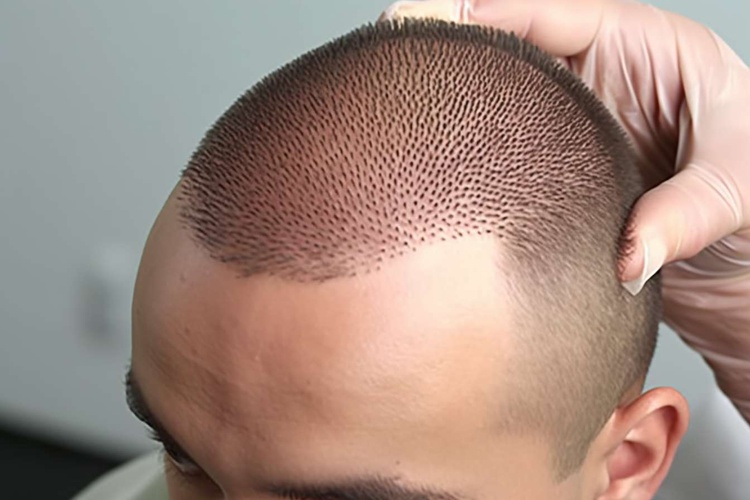Smart Guide to Scalp Psoriasis Shampoos
Medicated scalp shampoos can calm itch, loosen stubborn scale, and help prescription treatments penetrate better—when you choose the right formula and use it correctly. This guide explains what these shampoos do, why timing matters, the benefits to expect, step‑by‑step use, safety tips, and practical next steps if your current routine isn’t working.

Scalp psoriasis affects millions worldwide, causing uncomfortable symptoms ranging from mild flaking to severe, thick plaques that can extend beyond the hairline. While there’s no permanent cure, medicated shampoos have become cornerstone treatments for managing symptoms and improving quality of life. These specialized formulations contain active ingredients designed to address the underlying mechanisms of scalp psoriasis while being gentle enough for regular use. Finding the right shampoo can make a significant difference in controlling symptoms and maintaining scalp health between flare-ups.
What These Shampoos Do for Scalp Psoriasis
Therapeutic shampoos for scalp psoriasis work through multiple mechanisms depending on their active ingredients. Coal tar derivatives slow skin cell growth and reduce inflammation, helping to normalize the accelerated skin cell turnover characteristic of psoriasis. Salicylic acid works as a keratolytic agent, breaking down and softening thick, scaly plaques to facilitate their removal. Ketoconazole addresses any fungal components that might exacerbate symptoms, while zinc pyrithione fights against both fungal elements and excessive skin cell production. Prescription-strength shampoos may contain stronger ingredients like corticosteroids to reduce inflammation or vitamin D analogs that help regulate skin cell production and shedding cycles.
Why Scalp Psoriasis Treatment Matters Now
Recent research has highlighted connections between psoriasis and other health conditions, including cardiovascular disease, metabolic syndrome, and psychological impacts like depression and anxiety. This understanding has elevated scalp psoriasis from a mere cosmetic concern to a condition requiring comprehensive management. Additionally, advancements in formulation technology have led to more effective and cosmetically acceptable products, making consistent treatment more feasible. Environmental factors like increased stress levels and pollution in modern living can trigger or worsen psoriasis flares, making proactive management increasingly important. The growing recognition of psoriasis as an autoimmune condition has also shifted treatment approaches toward addressing underlying inflammation rather than just surface symptoms.
Key Benefits to Expect from Psoriasis Shampoos
Regular use of appropriate scalp psoriasis shampoos typically results in noticeable reduction of scaling, often within 2-3 weeks of consistent application. Many users report significant relief from itching and burning sensations, sometimes after just a few applications. Beyond symptom management, these products can help restore a healthier scalp environment that’s less prone to flare-ups. Modern formulations often include conditioning agents that counteract the potential drying effects of medicinal ingredients, helping maintain hair quality and manageability. For many individuals, the psychological benefits are equally important—reduced visible flaking improves confidence and reduces the social anxiety that often accompanies visible skin conditions.
How to Use Scalp Psoriasis Shampoos Effectively
For optimal results, begin by gently loosening existing scales with a soft brush or comb before wetting hair. Apply the medicated shampoo directly to the scalp rather than the hair shafts, using fingertips to massage it thoroughly into affected areas. Most therapeutic shampoos require a contact time of 5-10 minutes to allow active ingredients to penetrate effectively—consider using a shower cap during this waiting period. Rinse thoroughly and follow with a gentle, moisturizing conditioner applied only to hair strands, avoiding the scalp. Many dermatologists recommend a treatment schedule that alternates between medicated shampoos and gentle cleansers to prevent irritation or excessive dryness. For severe cases, initial treatment might involve daily use, gradually transitioning to 2-3 times weekly for maintenance.
Challenges and Safety Notes for Treatment
While generally safe, medicated shampoos can cause side effects including scalp irritation, dryness, or temporary hair discoloration—particularly with coal tar products. Some individuals may experience increased sensitivity to sunlight when using certain formulations, necessitating sun protection for the scalp. Prescription-strength corticosteroid shampoos should be used only as directed, as prolonged use can lead to skin thinning or rebound effects. Pregnant women should consult healthcare providers before using any medicated products, as certain ingredients may pose risks. Individuals with severe or resistant cases may need to combine shampoo therapy with other treatments like topical medications, phototherapy, or systemic treatments for comprehensive management.
Comparing Common Scalp Psoriasis Shampoo Types
| Shampoo Type | Active Ingredient | Best For | Average Price Range |
|---|---|---|---|
| Coal Tar Based | Coal Tar (0.5-5%) | Moderate to severe scaling | $10-25 |
| Salicylic Acid | Salicylic Acid (1.8-3%) | Thick, stubborn plaques | $8-20 |
| Antimicrobial | Ketoconazole, Zinc Pyrithione | Mild cases with itching | $7-15 |
| Prescription Strength | Clobetasol, Calcipotriene | Severe, resistant cases | $30-120 |
| Natural/Botanical | Tea Tree Oil, Aloe Vera | Mild symptoms, maintenance | $12-30 |
Prices, rates, or cost estimates mentioned in this article are based on the latest available information but may change over time. Independent research is advised before making financial decisions.
Managing scalp psoriasis effectively often requires a personalized approach that may evolve over time. While medicated shampoos form the foundation of treatment for many individuals, they work best as part of a comprehensive strategy that might include dietary considerations, stress management, and other prescribed therapies. The good news is that with consistent use of appropriate products and techniques, most people can achieve significant improvement in their symptoms. Advances in formulation continue to enhance both the efficacy and cosmetic acceptability of therapeutic shampoos, making long-term management increasingly feasible and comfortable for those living with this challenging condition.
This article is for informational purposes only and should not be considered medical advice. Please consult a qualified healthcare professional for personalized guidance and treatment.




